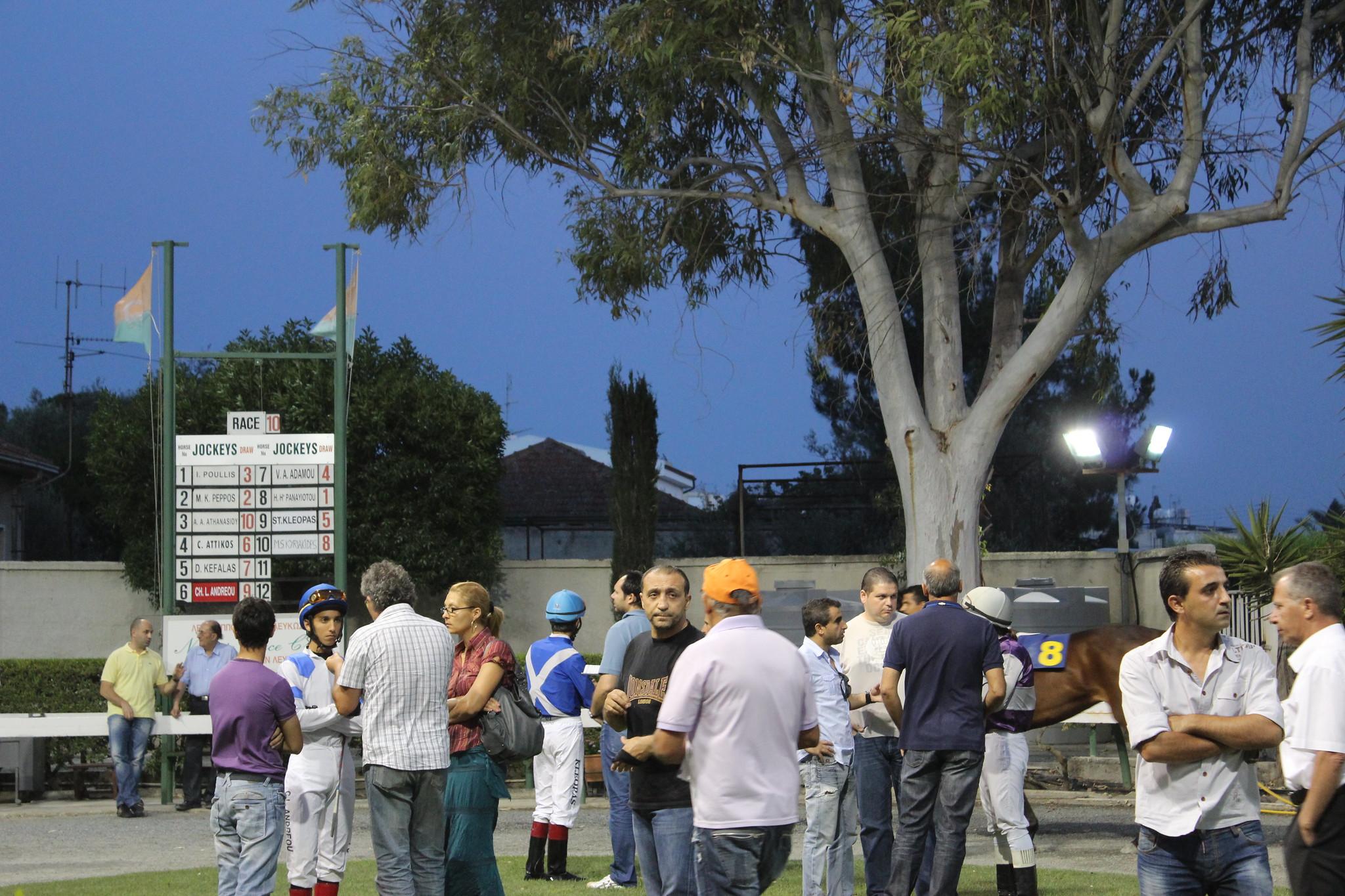A seemingly simple question: is it worth learning Greek to live or visit Cyprus? The answer to this question will require some considerations. These considerations are the heart of this article. Yes, there is a lot of text, but after reading it you will definitely be able to decide whether you need to learn not so simple Cypriot Greek, and if yes - how to do it?
1. What language is spoken in Cyprus
Cyprus is rather a small country, but there are... a lot of languages here! This is due to the rich history of the island and its cosmopolitan nature.
1.1 What languages are spoken in Cyprus?
The first official language is Greek. And the "Athenian" (i.e. modern literary) Greek is used here mainly only in official documents. Otherwise (for conversations, creative work, etc.) the Cypriot dialect of Greek is used. How they differ - below. Greek Cypriot is spoken mainly by Greek-Cypriots, i.e. inhabitants of the Republic of Cyprus (South Cyprus in common parlance).
The second official language is Turkish, spoken by the Turkish-Cypriots in Northern Cyprus (the TRNC, which most of the world's nations have not recognized as a separate republic). This too is not pure Turkish, but a dialect of it.

The third language, in which you can communicate almost everywhere in Cyprus, is Englis, of course British English. This is because the island was a colony of the British Empire until the middle of the XX century, and it became a habit to know this language. Children learn English well in schools and speak it quite fluently. Many signs, menus in restaurants, and websites of organizations duplicate information in English, some official documents can also be translated into this language.
Finally, the island is home to a sufficient number of different people, so in the big cities, you can hear a variety of languages. However, it is worth highlighting all the diversity of the Russian language: there are many immigrants from Russia and post-soviet countries, as well as Cypriots who studied in Russian universities. Therefore, it is quite possible to speak Russian in Cyprus - and Limassol in general has so much "Russian" that it is simply amazing.

1.2 Is it possible to live in Cyprus without knowing Greek?
As strange as it may sound, but yes: it is possible to live permanently in Cyprus without knowing Greek! For example, if:
- you have a good command of English;
- your employment does not require knowledge of Greek (work, business);
- you plan to live mainly among Turkish Cypriots (then it is better to learn Turkish);
- you plan to live in Limassol, where Russian is a fairly "popular" language;
- Not considering naturalization, i.e. obtaining the citizenship of Cyprus - this procedure will require passing an exam in Greek language.
Of course, if you live in Cyprus without leaving, it is still better to know Greek at least at the level of "I can read an inscription or discuss the weather".

From the author: My first trip abroad was from Russia to Armenia. Yes, 95% of people there speak Russian, but inscriptions and signs everywhere are in Armenian! it is rare that there is some writting in Latin script (for example, the names of banks) or translation into English (at the airport). And if not... I remember when we were looking for a copy service where we could print out return tickets. I'm sure we passed by many of them - we simply couldn't read in Armenian letters! Therefore, reading the foreign alphabet, at least, makes life much easier - that is for sure!
2. Differences between "Athenian" Greek and Cypriot Greek
To call the language spoken in Cyprus a dialect is most correct. There is still a noticeable difference between "classical" Greek and the language of Cyprus, but a Cypriot will understand a Greek perfectly, and a Greek, with some effort, will understand a Cypriot.
When compared to other linguistic precedents of "branching", Greek and Cypriot are more similar than Russian and Ukrainian. But have more differences between American and British English. Probably the most comparable situation is that of Classical Spanish and Argentine Spanish (castechano).
We are also used to the fact that a grandmother in a remote Siberian village will agree without any effort with a young man from Sakhalin or a girl from Bryansk. And what is there to say from Bryansk - even from Minsk! Despite the size of Russia and its neighboring former Soviet republics, there is no difference in accents (except for the Caucasus). Mostly there is the so-called govor, but it does not complicate understanding). Dialectisms can also be counted on the fingers. But in Cyprus, and in many countries, it is not like that.

People from different regions speak so differently that sometimes they need help to understand each other! For example, it is sometimes difficult for a Londoner to communicate with a person from Manchester, while people from the south of Germany get the news from the north of the country translated in a second! In Cyprus, the situation is such that in the big cities people speak Greek closer to "Athenian" Greek, but in the villages, you can meet such a dialect that you can't understand that easily.
Interestingly, in some regions of Greece, they speak a dialect that differs even more from classical Greek than Cypriot.
The difference in the literary Greek and in the Cypriot dialect can be found in:
- pronouns, the most striking example being τουτός instead of αυτός (the indexical pronoun "this", "he (the most)");
- variants of pronunciation of the same words: όι instead of όχι ("no"), εθ θέλω instead of δεν θέλω ("I don't want") - i.e. appearance/disappearance of other sounds, their doubling or change;
- grammatical forms: for example, the appearance of the ending -ν in some nouns in accusative and nominative cases, as in the word "program" πρόγραμμαν instead of πρόγγραμμα;
- grammar - different endings, word order in some word combinations;
- the appearance of hissing sounds, which do not exist in pure Greek;
- vocabulary, when Cypriots use other words to denote a concept or object, as a rule, these are borrowings from the languages of the former "conquerors" of the island: κουρτέλλα - "knife" (from Italian), τσαέρα - "chair" (from French), βουρκα - "bag" (from Turkish), etc..;
- spelling - this is due to different pronunciation, where Greek letters are used to spell a word differently;
- pronunciation - in Cyprus it is softer, hissing, and dragging.
So, the conclusion is as follows: if the language is being studied for a stay in Cyprus, it is best to focus on learning the local dialect. In the meantime, you can look up how this or that word would be in "classical" Greek, but you should concentrate on how they speak and write on the island.

3. Why should you learn Cypriot Greek
If you want to live in Cyprus and solve all your problems on your own, you should learn the language to a certain level of fluency. This will give you significant advantages - besides, the learning itself will be an interesting adventure, as the language is beautiful, and unusual and perfectly trains the mind and memory.
3.1 Basic level
This is usually the level of everyday conversation and reading simple texts (signs, restaurant menus, children's books, advertisements, Facebook pages, etc.). It does not imply serious knowledge of grammar and is suitable only for calmly communicating with people on everyday topics.
At this level, you should not worry about whether you have said or written correctly: in all likelihood, the locals will understand you. If you say in some language: "I am hungry" or "I don't have enough food", you will understand the sense. With Greek Cypriot the situation is exactly the same - rather, here you should overcome shyness and not be afraid to speak.
Note: Cypriots are quite talkative, so even a barista can tell you not only about the coffee, but also about the good weather and how wonderful your handbag is.
3.2 The level required for citizenship
Under the new law, different levels will be required depending on the length of residence. If the applicant has lived on the island for 5 years, he/she will only need to provide a certificate of language proficiency at A2 level. If 4 years (so far - only for highly qualified specialists in certain industries) - then B1. In any case, these are fairly easy levels to master, and it takes about 150 hours on average to learn them.

3.3 Near-native speaker level
As a rule, level B2 is enough for many foreigners to live comfortably. This is a level with good grammar and a sufficiently rich vocabulary. C1 is a level for the advanced, it may be required for a certain job or simply be "self-acquired" after several years of permanent residence in Cyprus.
Level C2 is the result of a long residence, good integration into the Cypriot-speaking environment, and, of course, lessons with a specialist. This level is close to the level of native speakers and is achieved by those who:
- love the language very much and want to master it perfectly;
- work with complex texts or large amounts of language (translators, editors, writers, ministries, ambassadors, etc.);
- has lived in Cyprus for a very long time and communicates mainly in the local language and not in others (deep integration).
Of course, C2 (and even C1) level is not necessary for everyone. But, if you have such a task in front of you, it is necessary to set yourself up to work under the guidance of a good teacher.
4. What is easy and what is difficult about the Greek
The Greek language has a fairly easy pronunciation, and it does not have cumbersome, multisyllabic words (as, for example, in German). Also, the vocabulary seems simple for Russian people at first, as their native language has many words borrowed from Greek ("philosophy", "lantern", "monastery", "history").

Native speakers of some languages are well-accustomed to case, genus, and related declension of nouns. English speakers, for example, are new to all this.
But there are also enough difficulties. As a rule, they can be:
- The alphabet. It may have similar letterforms from Cyrillic and Latin, but there are a lot of completely different characters, for example, Σσς (sigma, three spelling variants at once) or Ξξ (xy). The alphabet takes some getting used to.
- Artikles. There are none in Russian, so if there is no experience of learning other languages with articles (English, German, etc.), you will have to first realize their purpose and ways of "interacting" with the main word.
- Some sounds. For Russians, the interdental sounds [θ] (deaf) and [ð] (ringing) are unfamiliar, but you won't have any problems with them either if you have experience speaking English. The non-soft [ch] may also seem strange.
- Presence of the verb "to have/be". In Russian it is often omitted, but in many languages, including Greek, it is impossible to construct a sentence without a verb (i.e. action). That is, we will have to say not the usual construction "I am a doctor", but "I am a doctor" (Είμαι γιατρός, but "I" is omitted, why - because the verb form itself speaks about the person).
- Grammar. As we remember from the school course, grammar is morphology (the parts of language with all their endings, genders, cases, numbers, and so on, in Greek we also add articles) and syntax, i.e. word combinations and sentences (how all words are connected to each other). Greek has three genders and four cases, two numbers, and some other categories of parts of speech. Accordingly, for each "use case" you will have to learn the article + ending, and sometimes a preposition! This increases the amount of study. And there are 8 verb tenses in Greek... in general, you will have to work hard.
- Large sentences with free word order. Of course, simple everyday affirmative sentences in many languages are constructed in the order "subject + predicate + everything else" ("I went for a walk yesterday"). But neither Russian nor Greek use such simple constructions, especially in a lively interesting conversation or in a literary work. Therefore, you should be prepared for lengthy sentences with great emotional intensity and semantic content.
Many learners of Greek note that levels A1-A2 are very easy to comprehend, but then the difficulties begin. This should not frighten you: regular practice will help you overcome all the difficulties, even if age or other peculiarities seem to get in the way.

5. How to learn Greek quickly
Surprisingly, but if you look in hours, it does not take much time to achieve the first success. Thus, educators agree that to learn the language at certain levels you need an average of:
- at A1 level - 50 hours;
- from level A1 to A2 - 100 hours;
- from level A2 to B1 - 100 hours;
- from level B1 to B2 - 120 hours;
- from level B2 to C1 - 150 hours;
- from level C1 to C2 - 200 hours, half of which is practice;
- up to the level of a native speaker from scratch - about 1000 hours.
So, if you look at these figures sensibly, you can make simple calculations. If you study 6 hours a week (3 on your own and 3 with a teacher), you can "cover" more than 27 hours a month. Consequently, the A1 level can be achieved in 2 months! Of course, you can increase the intensity - or on the contrary, reduce it. But with a year of average training (we are talking about 6 hours per week) you can be well prepared for the citizenship exam.
5.1 Simple rules for studying
If you have ever studied a foreign language, you know that the most important rule is regularity. You can reach a good level of language proficiency, but if you abandon studying, you will get a significant setback. That's why the priority is to make time for daily lessons, even if it's only 15 minutes. Refreshing what you've learned without learning new things is still practice, and it's what will keep you on track.

The second rule, which is part of the first, is the use of the language. You need to listen, read, and, the most difficult thing for beginners - to speak. If there is a big psychological barrier, it is best to start with the simplest ευχαριστώ (thank you), παρακαλλώ (you are welcome), καλημέρα and Καλησπέρα (good morning/afternoon and good evening). The warm response of Cypriots to these simple words spoken by a foreigner will give them confidence and a desire to move on.
It is also worth paying attention to motivation. Very often, when one learns a language "for themselves", at some point the interest disappears. The same applies to those who are preparing to move to Cyprus, but do not live there yet. In this case, it is worth finding something in yourself that will "push in the back". The easiest option is to pay for language courses for a long time in advance (six months to a year), so that there is no possibility to refuse. Also, you should not ignore the possibility of making a Greek-speaking (in our case - better cypriot-speaking) pen pal.
The modern world offers another good way - to use special applications for learning a foreign language. They work well for repetition and give a short daily blitz: you can literally before going to bed take 5-10 minutes and thus consolidate the result.
5.2 Can you learn Greek on your own from scratch?
It is quite possible to reach the A1-A2 level on your own. To do this, you need to use the already-mentioned apps, video lessons, and self-studies. When immersed in a Greek-speaking environment, it will be easy to master the correct pronunciation and accent - this is possible when living directly in Cyprus.

However, it should be noted that from level B1 and above it is better to study with a teacher or sign up for a course. Firstly, it will speed up the process significantly (about 2 times), and secondly, it will allow you to learn and understand the language in a systematic and orderly manner. It will be great if the teacher is a Cypriot, a native speaker.
Hint: you can find language learning groups in Cyprus, including free or very inexpensive ones.
To sum up: it is easy enough to learn Greek at the beginner level, moreover, it may be obligatory if you get a job on the island or want to get citizenship by naturalization. Advanced levels already require effort, but after a year or two you will be able to speak Greek (or rather, Cypriot) fluently on many topics.
Read also:

